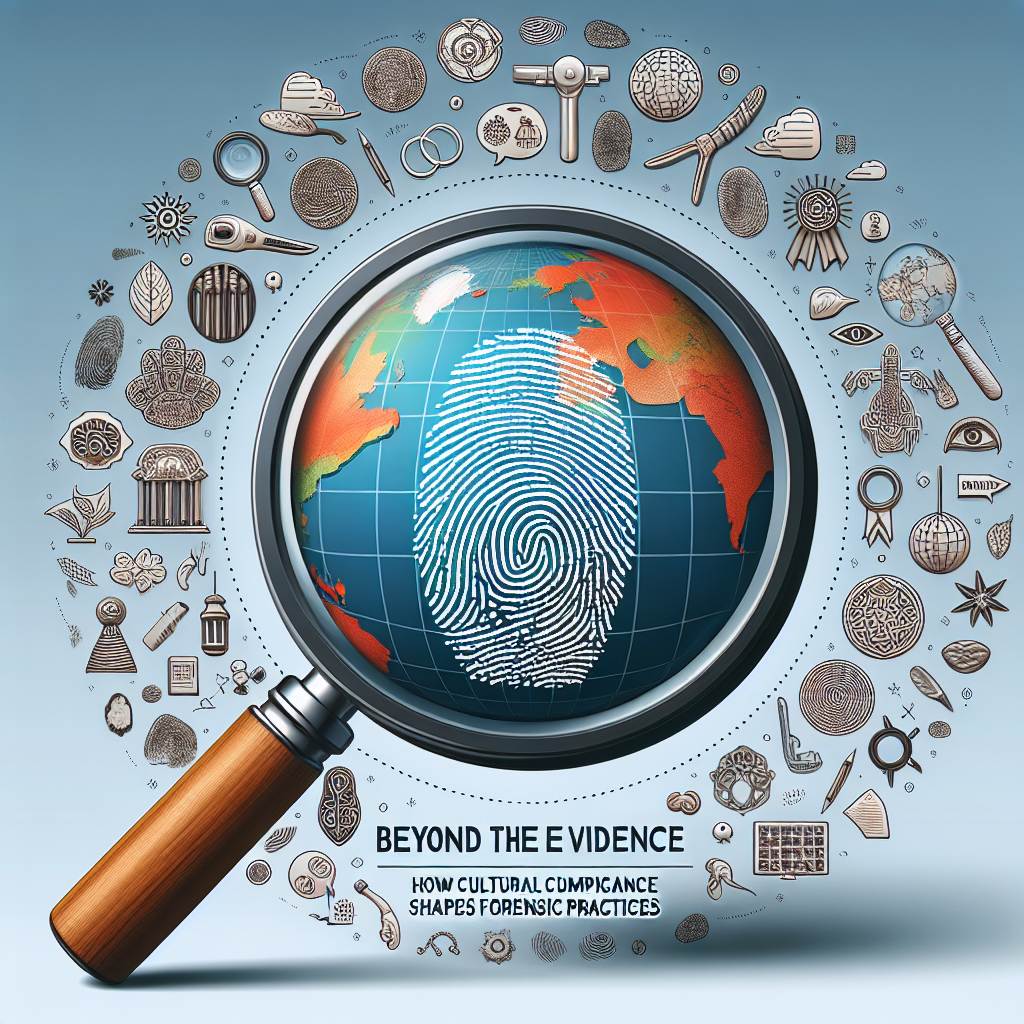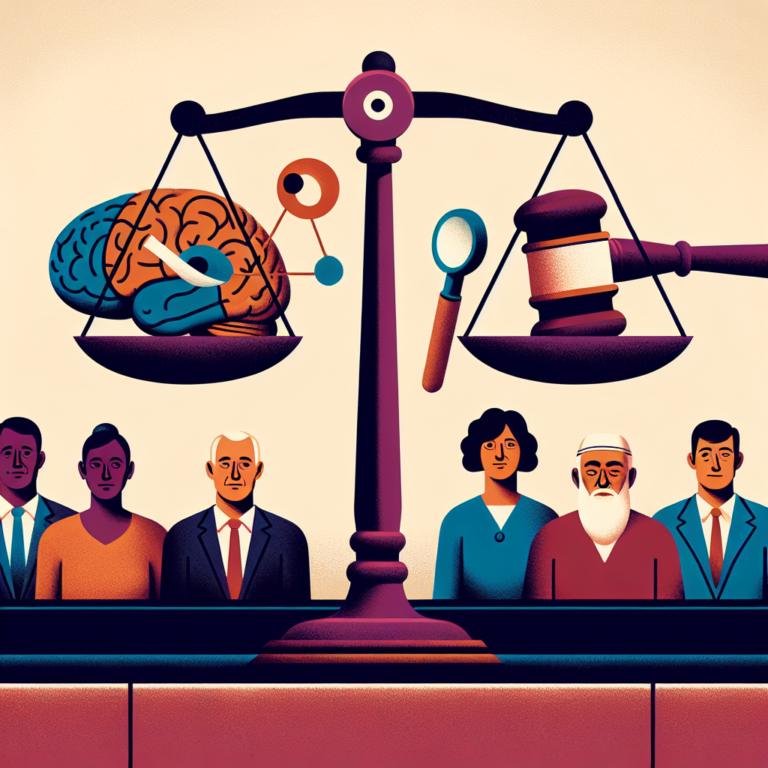
Introduction
In a world increasingly defined by cultural diversity, the intersection of forensics and cultural competence has become critical in ensuring justice. Legal systems often rely heavily on physical evidence, but addressing cultural contexts can dramatically enhance the effectiveness of forensic practices. The phrase "Beyond the Evidence: How Cultural Competence Shapes Forensic Practices" encapsulates this very essence.
In this article, we will explore the intricate relationship between cultural competence and forensic methodologies, illustrated through poignant case studies that reveal the transformative power of understanding diverse backgrounds. We’ll delve into the complexities of cultural perceptions surrounding crime, victimization, and evidence, ultimately showcasing how enhancing cultural competence is not just beneficial, but essential for a just legal system.
As we journey through this exploration, expect to understand not just the “how” but also the “why” behind integrating cultural competence into forensic practices.
The Significance of Cultural Competence in Forensics
Understanding Cultural Competence
Cultural competence refers to the ability to understand, communicate with, and effectively interact with people across cultures. In forensics, practitioners must navigate the cultural beliefs, values, and practices of diverse populations, which often influence the way evidence is perceived and handled.
Why Cultural Competence Is Essential
The legal system is not colorblind; cultural factors play a significant role in shaping societal responses to crime. Misunderstandings stemming from cultural differences can lead to misinterpretations of evidence, unreliable testimonies, and even wrongful convictions.
By emphasizing cultural competence, forensic professionals can foster trust within communities, ensuring that victimization is adequately represented and that investigations are conducted with sensitivity.
Case Studies Illustrating Cultural Competence
Case Study 1: The Role of Cultural Perceptions in Victim Reporting
In a sentinel case in Los Angeles, a series of domestic violence incidents went unreported in a particular immigrant community. Investigators found that victims were reluctant to come forward due to fear of legal repercussions or cultural stigma.
Analysis
This case highlights that without cultural understanding, forensic practices can inadvertently alienate potential victims. Courts that consider cultural backgrounds are more likely to encourage honest reporting, thus enriching the evidence pool and enhancing justice.
Case Study 2: Cultural Nuances in Forensic Interview Techniques
A prominent case in Chicago involved a child witness from a religious minority. The initial interview conducted by law enforcement yielded minimal information due to a lack of cultural awareness regarding the child’s familial dynamics and religious sensitivities. After consultation with cultural liaisons, investigators successfully refined their interviewing techniques.
Analysis
This example illustrates that culturally competent communication can lead to more effective forensic investigations. By respecting cultural values, investigators can establish rapport, leading to more accurate evidence collection.
Key Areas Where Cultural Competence Influences Forensic Practices
1. Evidence Interpretation
Cultural competence allows forensic analysts to interpret evidence with consideration of cultural contexts. For instance, different cultures may have varying beliefs about what constitutes “normal” behavior, impacting how actions are interpreted in a forensic setting.
2. Community Trust and Cooperation
Building relationships with local communities fosters trust, which is crucial for cooperation in investigations. Engaging with community leaders and understanding local norms can lead to better collaboration and successful outcomes.
3. Training and Professional Development
Regular training on cultural competence for forensic professionals is essential. Such training can equip them with the tools to respectfully engage with diverse populations and understand how cultural factors influence criminal behavior and responses.
4. Policy Formation
Incorporating cultural competence into policy-making ensures a more holistic approach to forensic investigations. Policies that recognize and integrate cultural differences can promote fair treatment and enhance the quality of forensic practices.
Tables: Key Insights on Cultural Competence in Forensics
| Area | Importance | Example |
|---|---|---|
| Evidence Collection | Enhances accuracy | Improved reporting from diverse communities |
| Interrogation Techniques | Builds rapport | Culturally tailored interviews yield better testimonies |
| Policy Development | Promotes fairness | Cultural liaisons guide policy reforms |
Conclusion
The evidence is clear: to achieve justice, we must look beyond the evidence itself. Cultural competence shapes forensic practices in ways that can redefine outcomes. By embracing this holistic view, forensic professionals can not only improve their methodologies but also advocate for justice that is responsive to the diverse values and experiences of all communities.
As you reflect on the importance of this integration in forensic practices, consider ways you can promote cultural awareness in your field, whether through continued education, community engagement, or policy advocacy. Each of these steps contributes to a justice system that serves everyone equitably.
Frequently Asked Questions (FAQs)
1. What is cultural competence?
Cultural competence is the ability to engage effectively with individuals from diverse cultural backgrounds, understanding their beliefs, values, and behaviors.
2. How does cultural competence impact forensic practices?
Cultural competence enhances the accuracy of evidence interpretation, promotes trust in community interactions, and leads to more effective communication during investigations.
3. Why should forensic professionals prioritize cultural competence?
Prioritizing cultural competence helps ensure a fair legal process, encourages reporting from diverse populations, and enhances the quality and reliability of forensic practices.
4. Are there specific training programs for fostering cultural competence in forensics?
Yes, many organizations offer training programs specifically designed to enhance cultural competence among forensic professionals, focusing on effective communication and community engagement strategies.
5. How can cultural competence help reduce wrongful convictions?
By understanding cultural contexts and nuances, forensic practices can significantly reduce misunderstandings that lead to wrongful accusations or convictions, ultimately promoting justice.
This exploration of "Beyond the Evidence: How Cultural Competence Shapes Forensic Practices" underlines a critical evolution in the justice system. As we push forward, committing to cultural understanding will not only enhance forensic effectiveness but also secure a foundation for equitable justice.
















